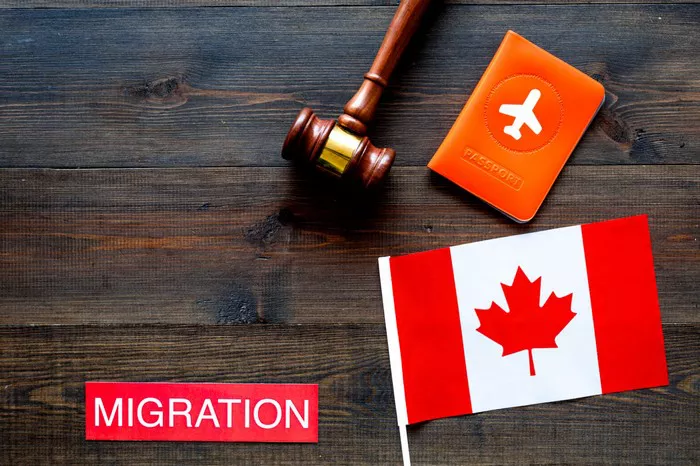When planning a holiday to Canada, one of the most important factors to consider is whether you need a visa. This guide will help you understand the visa requirements for various travelers, including detailed information on the application process, exemptions, and essential tips for a smooth visit.
Understanding Canadian Visa Requirements
Canada’s visa requirements vary depending on your nationality and the purpose of your visit. Generally, travelers from many countries need a visa to enter Canada. However, some visitors may be eligible for visa exemptions or alternative entry options.
Types of Visas for Canada
Visitor Visa (Temporary Resident Visa)
A Visitor Visa, also known as a Temporary Resident Visa (TRV), is required for individuals from countries that do not have visa-free agreements with Canada. This visa allows you to stay in Canada for tourism, family visits, or business purposes.
eTA (Electronic Travel Authorization)
Citizens of visa-exempt countries may need an Electronic Travel Authorization (eTA) instead of a visa. An eTA is an entry requirement for visa-exempt foreign nationals traveling to Canada by air. It is electronically linked to your passport and is valid for up to five years.
Do I Need a Visa or eTA?
Visa-Exempt Countries
If you are from a visa-exempt country, you generally do not need a Visitor Visa for short stays (up to six months). However, you must apply for an eTA if you are flying to Canada. Visa-exempt countries include the United States, many European nations, Australia, and Japan.
Countries Requiring a Visa
If you are from a country that requires a visa, you must apply for a Visitor Visa. This includes travelers from countries like India, China, and Nigeria. The application process involves providing personal information, travel details, and supporting documents.
Applying for a Visitor Visa
Application Process
To apply for a Visitor Visa, follow these steps:
Determine Eligibility: Ensure you meet the eligibility criteria, such as having a valid passport, proof of funds, and no criminal record.
Complete the Application: Fill out the application form (IMM 5257) and gather the required documents, including your passport, photos, and proof of financial support.
Pay the Fees: The application fee for a Visitor Visa is CAD 100. Payment can be made online or at a Visa Application Center (VAC).
Submit the Application: You can apply online or in person at a VAC. Some countries may require you to attend an interview or provide biometric information.
Wait for Processing: Processing times vary depending on your location and the volume of applications. Check the estimated processing times on the Canadian government’s website.
Receive Your Visa: If approved, you will receive a visa sticker in your passport. Make sure to check the visa validity dates and conditions.
Supporting Documents
When applying for a Visitor Visa, you may need to provide:
1. Proof of travel arrangements
2. Evidence of ties to your home country (e.g., employment letter, property ownership)
3. Financial documents (e.g., bank statements, pay stubs)
4. Letter of invitation from a host in Canada (if applicable)
Applying for an eTA
Application Process
To apply for an eTA, follow these steps:
Check Eligibility: Confirm that you are from a visa-exempt country and meet the requirements for an eTA.
Complete the Application: Fill out the online eTA application form. You will need your passport information, email address, and travel details.
Pay the Fee: The fee for an eTA is CAD 7. Payment is made online during the application process.
Submit the Application: After submission, you will receive an email confirming your application. Most eTA applications are processed within minutes, but some may take longer.
Receive Your eTA: If approved, your eTA will be electronically linked to your passport. Check your email for the confirmation.
Supporting Documents
For an eTA application, you generally do not need to provide additional documents. However, you must have a valid passport, a credit card for payment, and an email address.
What to Do If Your Visa or eTA Is Denied
If your visa or eTA application is denied, you can:
Request a Reconsideration: If you believe there was an error, you can request a review or reconsideration of your application.
Apply Again: You may reapply if you can address the reasons for the initial denial. Ensure you correct any issues and provide additional documentation if needed.
Seek Legal Advice: If you encounter difficulties, consider consulting an immigration lawyer for guidance.
Additional Tips for a Smooth Visit
Check Passport Validity: Ensure your passport is valid for the duration of your stay and has at least one blank page for stamps.
Understand Entry Requirements: Familiarize yourself with Canadian customs regulations and prohibited items to avoid issues at the border.
Prepare for the Border: Have all your travel documents ready and be prepared to answer questions about your stay.
Stay Informed: Keep up-to-date with any changes to visa requirements or travel advisories related to Canada.
see also: Can Jamaicans Travel to Canada Without a Visa?
Conclusion
Understanding whether you need a visa or an eTA for your holiday in Canada is crucial for a smooth travel experience. By following the application procedures and preparing the necessary documentation, you can ensure that your visit to Canada is enjoyable and hassle-free.
Whether you require a Visitor Visa or an eTA, planning ahead and complying with entry requirements will help you make the most of your Canadian adventure. Safe travels!


